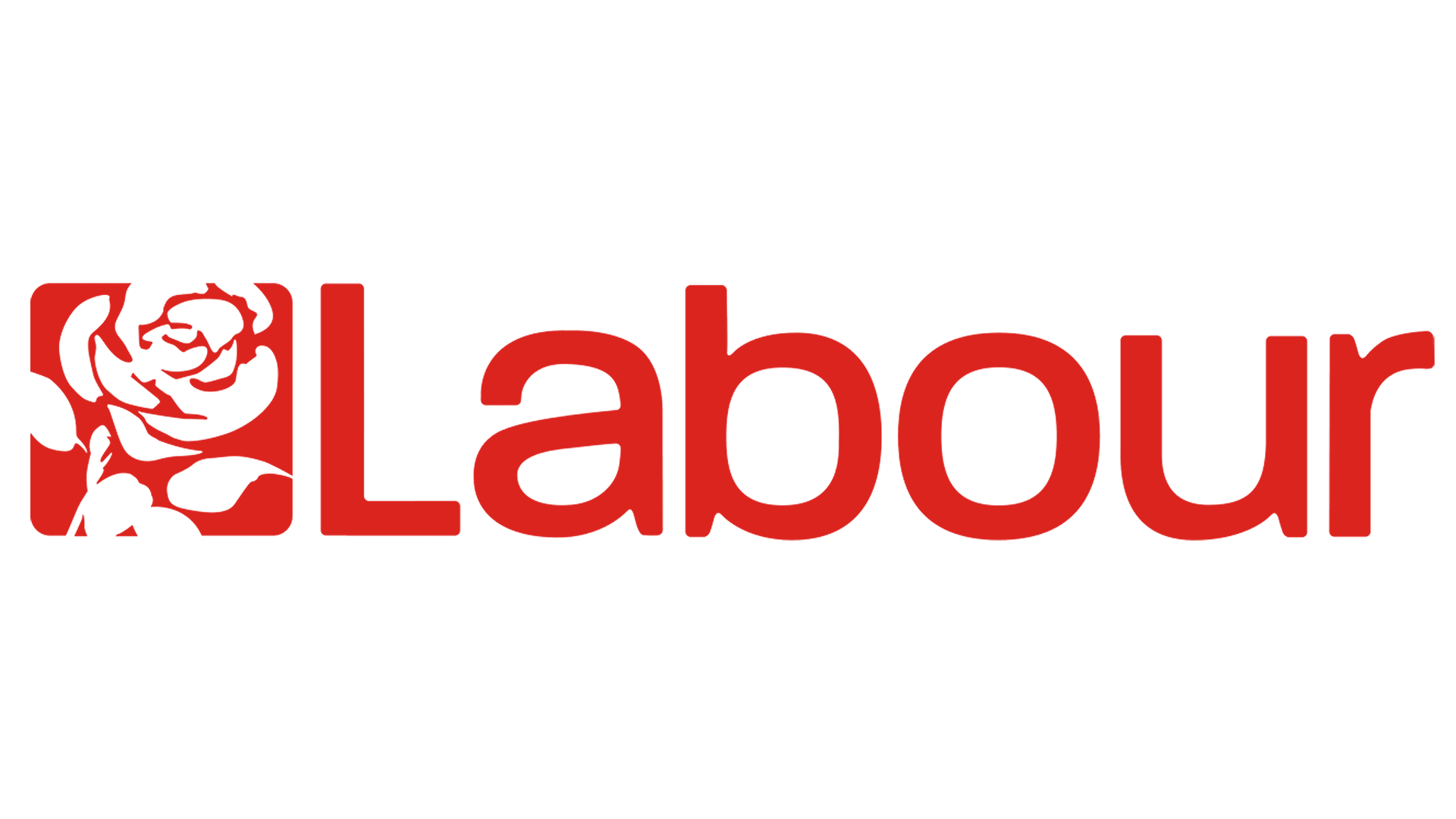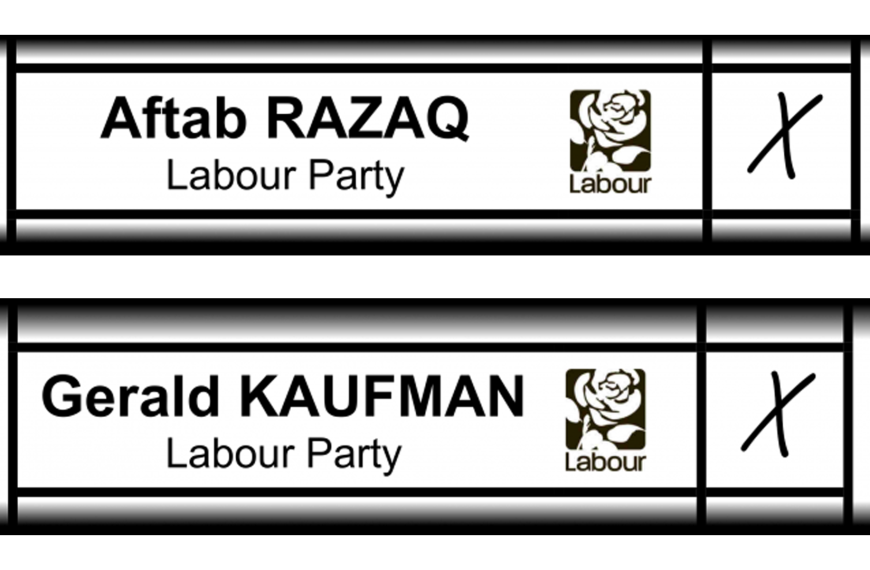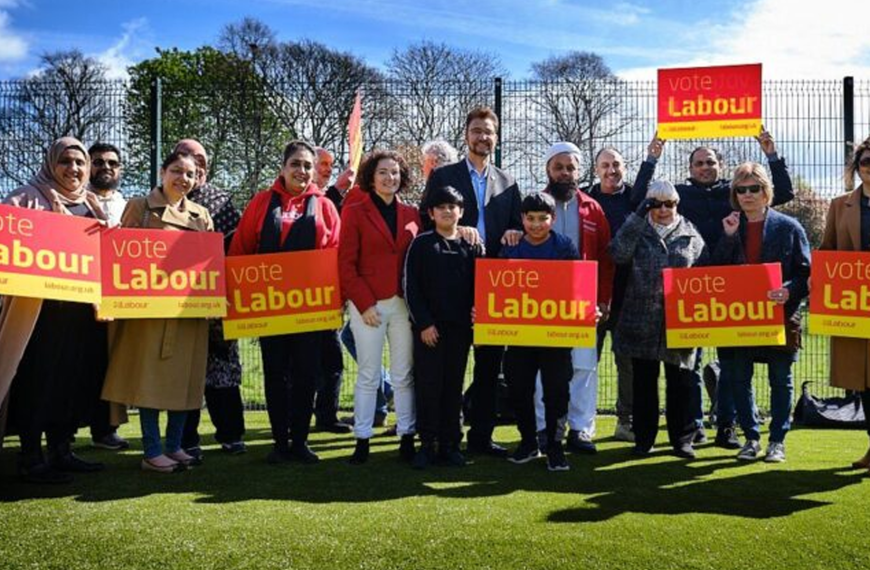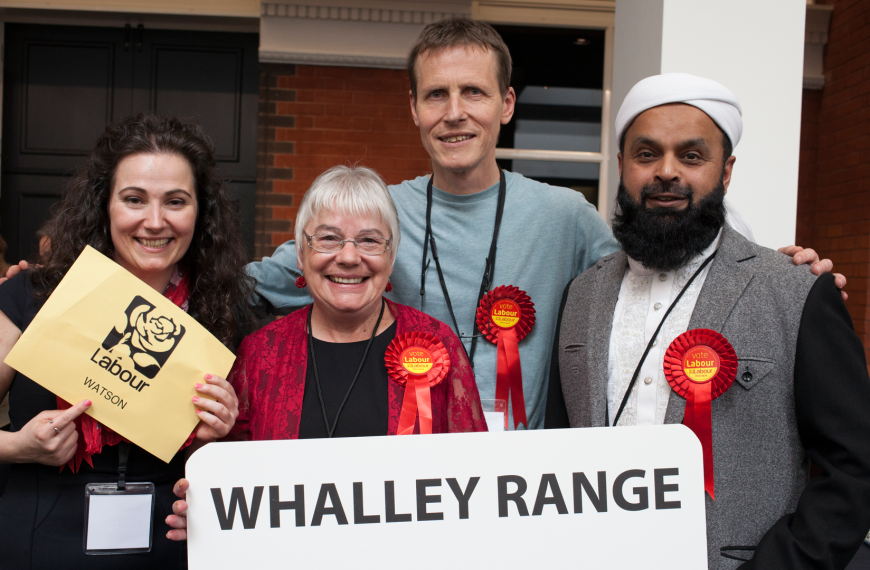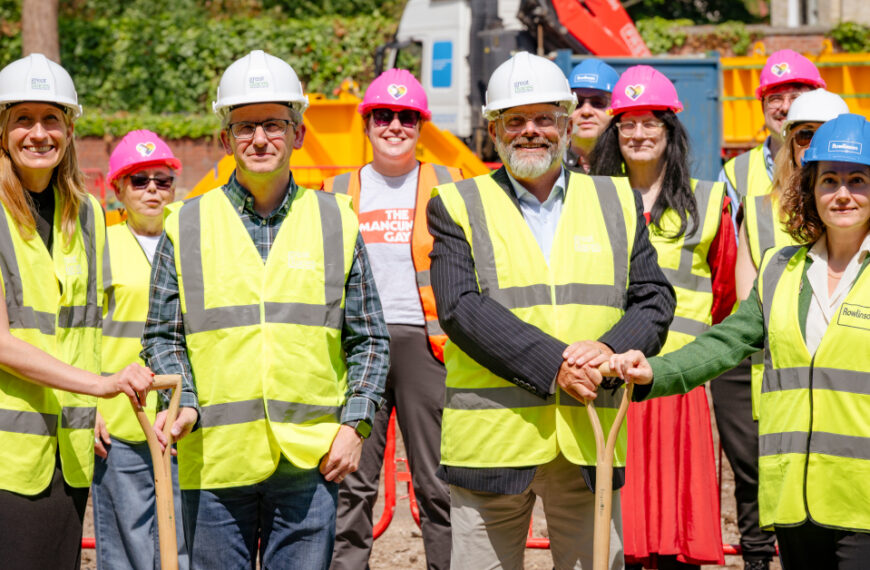Gerry Collier attended the party’s National Conference here in Manchester in September, and has prepared a summary of the National Policy Forum Report. This was endorsed by the Conference and will form the basis for Labour’s manifesto at the next General Election, to be held on 7 May 2015.
Here is the text of Gerry’s report:
Labours 6 point pledge:
1. Giving all young people a shot in life: Ensure as many school-leavers go on to apprenticeships as go to university.
2. Tackling the cost-of-living crisis: Help working families share fairly in the wealth of our country so, when the economy grows, the wages of everyday working people grow at the same rate.
3. Restoring the dream of home ownership: Meet demand for new homes for the first time in half a century – doubling the number of first-time buyers getting on to the housing ladder each year.
4. Tackling low wages: Halve the number of people on low pay in our country, changing the lives of over two million people.
5. Securing the future: Create one million more high-tech jobs by securing the UK’s position as a world leader in green industries.
6. Saving our NHS: Build a world-class, 21st century health and care service.
LABOUR’S 2015 MANIFESTO – Abstracted from National Policy Forum Report 2014 agreed by conference
Sustainability and prosperity
Labour will:
. Re-affirm collective bargaining agreements and equal pay
. Introduce specific measures to tackle low pay including paying “living wage” in Whitehall departments
. Work with Labour Councils, the NHS and other public sector employers to support the “living wage”, also in procurement
. Address National Minimum Wage abuses
. Improve standards of training
. Stamp out “zero hour contracts” abuses
. Review TUPE rules to avoid race to the bottom
Labour will take immediate action to freeze energy bills through to 2017.
Labour will abolish quarterly reporting rules for companies and restrict shareholder entitlement to vote on takeovers to those holding shares when bid is made.
Labour will radically devolve powers to city and county regions to invest directly in housing, infrastructure and skills and economic development.
Labour will introduce a public interest test for all outsourcing, end presumption that all outsourcing is the right approach and bring services back in house when that offers better value for money. Decisions will be based on the true evaluation of life cycle costs, quality of service and wider social impact.
Labour will implement a zero tolerance approach regarding firms that defraud the taxpayer. FOI will apply to any significant provider of public service.
Labour will ensure a positive public procurement process that supports local and national employment.
Labour will ensure the provision of high quality apprenticeships are a pre-requisite of any bid for significant government contracts.
Labour will set up an effective British Investment Bank to help small and medium sized businesses to get access to funding.
Labour is committed to tackling climate change and are committed to decarbonising the power sector by 2030.
Labour will set up a new National Infrastructure Commission.
Labour will ensure 200,000 new homes a year are constructed by 2020
Labour will cap the total cost of credit with regard to “pay day lenders”. Labour will introduce a new levy on “payday lenders” to support low cost credit alternatives such as credit unions.
Labour will establish a legal limit on the market share any bank can have of personal accounts and small business lending.
Labour will also support a regional banking system.
Labour will continue to support a progressive tax system and ensure the wealthiest individuals and businesses contribute to the economy and society the benefit from.
Labour will campaign for an international Financial Transaction Tax.
Labour will break up banking so that retail banking is completely separate from investment banking.
Labour will repeat the bank bonus tax to provide a compulsory jobs guarantee for young people out of work.
Labour will also require banks to publish the number of employees paid more than £1m
Labour will maintain the most competitive corporation tax rate in the G7.
Labour will crack down on empty homes loopholes and give local councils powers to tackle “buy to leave”.
Labour will tax properties worth more than £2m and use the revenues to cut income tax for people on middle and lower incomes with a 10p starting rate of income tax. There would be protection for people who do not have a high income but who happen to live in expensive property. The tax will be progressive and be operated on a banded basis.
Labour will promote the “living wage”.
Labour will push for European and international action on greater business transparency around revenues, profits and tax paid to improve transfer pricing rules.
Labour will make registers of company’s beneficial ownership publicly available and push for this policy internationally.
Labour will tackle false self-employment in the construction industry and will abolish loopholes in existing deeming measures including through umbrella and payroll companies.
Labour will cut and then freeze business rates for small and medium sized companies by not cutting corporation tax in 2015-16.
Labour will restore the 50p top rate of tax for incomes over £150,000.
Current government plans for spending in 2015-6 will be a starting point and any changes for current spending in that year will be fully funded. There will be no additional borrowing for day to day spending.
Labour will balance the books and deliver a surplus on current budget and falling national debt as soon as possible in the next parliament.
Labour will protect state pensions with the triple lock but it will not be a priority to pay the winter fuel allowance to the richest 5% of pensioners.
Work and business
Labour will reduce energy costs for business through the energy price freeze.
Labour will promote advanced apprenticeships and STEM degrees for UK students and support science, research, development and technology.
Labour will decentralise power, from Whitehall to our towns and cities, over transport, housing, skills and economic development.
Local enterprise partnerships will be reformed to give businesses, local authorities and other stakeholders including trades unions a direct say over growth strategies and priorities.
Labour will keep the 30% public stake in the Royal Mail and support a 10% employee stake. Labour will secure the universal public service obligation beyond 2015 and for the next parliament and for the foreseeable future and ensure an appropriate degree of price control over Royal Mail.
Labour will introduce an annual health check on markets to ensure they operate in the public interest.
Labour will charge the Low Pay Commission with implementing a 5 year target to significantly increase the national minimum wage to get closer to average earnings.
Labour will expand the remit of HMRC on enforcement to include non-payment of holiday pay alongside increased fines and a new role for local authorities in enforcement.
Labour will require listed companies to report on whether or not they pay the living wage and use government contracts to spread the living wage.
Labour will establish “make work pay” contracts giving tax rebates to companies that pay the living wage.
Labour will increase transparency on pay by requiring companies to publish the ratio of pay of their top earners with the average employee, the pay of the top ten earners outside the boardroom and will ensure there is an employee on remuneration committees.
Labour will require investment and pension managers to disclose how they vote on pay and all other issues and ensure shareholders approve remuneration packages in advance.
Labour will extend free childcare for three and four year olds from 15 to 25 hours per week, paid for by increasing the bank levee and will ensure that primary school children have “wrap around” childcare from 8am to 6pm.
Labour will increase security in the workplace by enhancing employment rights and are committed to meeting international obligations on labour standards such as freedom of association.
Labour will reform the employment tribunal system to ensure all workers have proper access to justice.
Labour will re-instate the Tower Crane Register and Regulations and Construction (Head Protection) Regulations. Labour will ensure all self-employed workers are properly protected and the Health and Safety Executive can operate as an effective enforcement agency.
Labour will take action to ensure agency workers are properly protected and will repeal the Swedish Derogation provisions in the Agency Workers Regulations (regulation 10) so that these workers those workers on contracts providing pay between assignments are not excluded.
Labour will extend the remit of the Gangmasters Licencing Authority to cover different sections of the economy, such as construction, hospitality and social care.
Labour will ensure agricultural workers are properly protected.
Labour will monitor employment practices to assess whether employers are increasing the use of short term contracts following action to on zero hours contracts and will take action to prevent this.
Labour will launch a full inquiry into blacklisting in the construction industry.
Labour will review the current implementation of the Information and Consultation regulations to examine how information and consultation can be made widespread and more meaningful.
Labour will act on the EAT ruling that the threshold of 20 or more employees for collective redundancy purposes should be looked at across all of an employer’s establishments and not for each separate establishment.
Labour will introduce a “Technical Baccalaureate” in schools and colleges to raise the status and quality of vocational education to create a clear and improved route to apprenticeships and jobs.
Labour will give businesses more control over funding and design of apprenticeships in exchange for increases in quantity and quality of training.
Labour will ensure that every large firm that wins a major government contract must commit to providing apprenticeships and training young people for high skilled jobs.
Labour will support the maintenance of good industrial relations through courses for trades union reps to enable those reps to carry out their statutory functions and ensure all workplaces comply with all relevant regulations including Health and Safety.
Labour will support the 8.7 million working people who lack basic ICT skills by offering basic ICT skills training and will work with employers to enable people who need it to access the training.
Labour will repeal the Bedroom Tax.
Labour will conduct a full review of Universal Credit, including whether it is delivering value for money.
Labour will give local councils the power to negotiate rents on behalf of tenants receiving housing benefit to get lower rents and recycle some of the benefit savings into building more homes.
Labour will establish an independent commission to set the cap on housing benefit per household at the right level for different areas.
Labour will introduce a fully funded compulsory jobs guarantee for young people out of work for a year, paying the wages of participants for 25 hours at minimum wage, businesses involved would be required to provide at least training of at least 10 hours per week. The same offer will be made to those over 25 who have been unemployed for over 2 years.
Labour will ensure young unemployed people are provided with good quality work experience placements which offer proper training, mentoring and help with job search.
Labour will ensure every jobseeker is assessed for basic English, maths and it skills. Anyone lacking basic skills will be offered training to improve their chances of finding a job – training they would be required to take up.
Labour will end the contract with ATOS and reform the Work Capability Assessment.
Labour will ensure that there is support available to disabled people to meet the extra costs of disability.
Labour will introduce a higher rate of Jobseekers Allowance for those who have contributed over the years.
Labour will protect the state pension with the triple lock, rising annually by inflation, earnings or 2.5 per cent whichever is the highest. It will no longer be a priority to pay the winter fual allowance to the richest 5 per cent of pensioners.
Labour will restrict pension tax relief for the very highest earners.
Labour will cap pension charges and make it a legal requirement that pension scheme providers must prioritise savers above shareholders.
Labour will require all pension providers to ensure people saving with annuities are offered the best deal on the market.
Labour will ensure workplace pension schemes prioritise the interests of savers and will guarantee basic rights of information for savers and encourage participants to ensure trustee boards are accountable.
Living standards and sustainability
Labour will decarbonise the power sector by 2030.
Labour will retain the Disabled Persons Transport Advisory Committee and ensure that all stakeholder including trades unions are included on it.
Labour will act to increase accessibility to our public transport network and set a date all trains and buses to have audio-visual announcement systems.
Labour will encourage local authorities to introduce 20mph limits in urban areas where appropriate.
Labour will work with local authorities to reduce air pollution caused by road traffic particularly diesel engines and take action to reduce road deaths and injuries, particularly among young drivers.
Labour will empower communities and individuals who use services, with stronger powers in shaping them.
Labour will transfer responsibility for local transport decisions, including some control over transport fares and frequency of services to elected transport authorities and partnerships.
Labour will ensure that safety considerations on buses and trains and bus stops and train stations are prioritised to make public transport as safe as possible.
Labour will legislate to give local authorities more powers to create better bus networks.
Labour will review the failed franchising of rail services, legislate to allow a public sector operator to be able to take on lines and use co-operative principles to ensure passenger and employee involvement within transport delivery.
Labour will devolve decisions over the running of regional and local services.
Labour will give Network Rail greater responsibility for developing a long term plan for procurement and leasing new rolling stock.
Labour will create a single guiding mind for the railways.
Labour will cap annual fare rises on every route, simplifying fare structures and create a new legal right to the cheapest ticket.
Labour will strengthen the resilience of the transport network, in particular recognising the needs of Somerset, Plymouth and Cornwall.
Labour will tackle the increasing cost of train travel by removing the “flex” on fare rises and introduce a strict cap on annual fare increases across all routes and take steps to ensure single fares are always lower than return fares.
Labour will ensure a fair system of transport funding to counter regional disparity.
Labour will devolve decisions on running of regional and local services so that areas can better integrate trains, buses, ferries and trams.
Labour will grant sub-national bodies greater control over transport spending to deliver local priorities and require strategic highways authorities to work with sub-national bodies to improve integration of local and national road systems.
Labour will create a national infrastructure master plan to provide an integrated transport model.
Labour supports HS2 but will not issue a blank cheque for it and will ensure it creates new apprenticeships and job opportunities.
Labour supports ongoing investment in London’s infrastructure.
Labour will promote cycling, set national standards to cut deaths and serious injuries, take steps to reduce the risk of collisions with large vehicles and ensure children and young people are educated in cycle safety.
Labour will break the strangle hold of the big six energy companies by ring-fencing their generation and supply businesses and forcing them to buy and sell their energy through open exchanges. Labour will also require energy companies to open their books and provide information on their trading activities and retail and generation businesses.
Labour will support different models of energy generation and ownership, including co-operative, mutual and municipal models.
Labour will implement a long term and sustained energy infrastructure investment and skills programme to ensure secure, safe, environmentally friendly and affordable electricity.
Labour will introduce new, simpler energy tariff structures to enable consumers to compare prices.
Labour will freeze energy prices until 2017.
Labour will tackle the unfair practice of energy companies charging higher tariffs for those on pre-paid meters.
Labour will roll out “smart meters” which will enable customers to switch suppliers more easily.
Labour will radically reform the Energy Companies Obligation (ECO) and the green Deal by using area-based partnerships led by local authorities.
Labour will support community energy to increase provision of cheaper, greener energy.
Labour will fully scrutinise the role of OFWAT and require water companies to publish annual information on corporate structure, levels of investment, ownership, taxation and dividend payments and workforce development.
Labour will ensure the development of Shale Gas in the UK only takes place in a robust, safe and environmentally sustainable framework.
Labour will create an Energy Security Board to plan for and deliver our low carbon energy needs.
Labour will continue to support the EU emissions reduction target of 40% by 2030 by encouraging investment in energy efficiency, renewables, nuclear and carbon capture and storage.
Labour will re-prioritise flood protection.
Labour will pay winter fuel payments earlier for pensioners using off grid energy to allow purchase of fuel at summer prices.
Labour will tackle cost of doing business in rural areas by freezing business rates and energy bills for small and medium sizes enterprises (SME’s).
Labour will empower communities to make best use of their existing rights to retain community assets.
Labour will review the £17m subsidy to gun licence holders, raising the fees towards full cost recovery.
Labour supports an evidence based approach to tacking bovine TB, with a coherent plan to eradicate TB through vaccination of both cattle and badgers and tougher rules on the movement of livestock.
Labour will protect Britain’s natural environment, right to roam and wildlife for future generations.
Stronger, safer communities
Labour will build 200,000 new homes a year by 2020.
Labour will require an additional home for social rent to be built for each home sold under right to buy.
Labour will support local authorities who want to build more social homes and encourage those that do not to do so.
Labour will reform the housing revenue account to enable councils to build new homes and to improve existing homes.
Labour will empower councils to build homes and provide support to acquire neglected homes, empty homes and undeveloped land to renovate and build new homes.
Labour will give councils powers to charge developers who refuse to build, despite having planning permission and as a last resort will grant “use it or lose it” powers to councils.
Labour will ensure communities receive a larger share of gains from developments.
Labour will empower councils to levy double council tax on empty homes and close loopholes regarding empty properties.
Labour will shift resources, steadily over time, from welfare support for housing to capital support for social and council housing for rent.
Labour will set about building “New Towns” and “Garden Cities” with legislative and treasury support.
Labour will work with local authorities to increase the supply of affordable housing for local people.
Labour will introduce rights for tenant’s to have longer term lets and predictable rents.
Labour will raise awareness of Residential Property Tribunals and put in place measures to stop retaliatory evections.
Labour will regulate letting agents and prevent rip off fees and charges.
Labour will set up a self- funded, mandatory register of private landlords and make it easier for councils to introduce licencing schemes with tough sanctions for bad landlords and a benchmark system for property standards.
Labour will give local people the freedoms and powers to redesign services to deliver with fewer resources.
Labour will ensure local authorities are properly resourced, enabling them to be a decent employer and essential economic driver in their locality.
Labour will review the allocation formula for the distribution of funding to councils to ensure that the poorest areas are not disadvantaged. Local authorities will retain 100% of business rates and have greater financial freedom.
Labour will support “insourcing” across government, identifying where provision is cheaper, more efficient and better value and encourage Labour Councils to do the same.
Labour will give local authorities greater freedom and control, so that they can design and deliver public services their communities need by pooling and devolving budgets to a single place.
Labour will cap the cost of credit and give local communities new powers to limit pay day lenders on the high street. Labour will also place a levy on pay day lenders profits which will be used to support low cost alternatives such as credit unions.
Labour will renew the national regulatory regime for gambling to reduce harm to the most vulnerable and provide councils with new powers to control fixed odds betting terminals.
Labour will cut business rates on properties with rental value less than £50,000 in 2015 and freeze them in 2016.
Labour will ensure a fair system of funding for the fire and rescue service to protect local communities.
Labour will back co-operation between police and judicial authorities in Europe and the wider world to tackle cross border crime.
Labour will ensure police services have active recruitment policies to increase diversity especially in our big cities.
Labour will reform stop and search powers of the police.
Labour will examine the role Police and Crime Commissioners have played in maintaining the democratic accountability of policing and assess what reforms are needed.
Labour will re-instate the priority attached to neighbourhood policing and independently review the performance of private contractors in the police service.
Labour will introduce a “Victim’s Law” to give victims of crime entitlements to minimum standards of service and will ensure victims of crime are entitled to restorative justice if they wish it.
Labour will extend the remit of hate crimes to include hostility based on trans identity, sexual orientation and disability.
Labour will support a unified and locally based probation service integrated with other local services.
Labour will establish a Commissioner of Domestic and Sexual Violence.
Labour will establish national standards for the training of police and criminal justice professionals and the provision of specialist services driven by the new Commissioner for Domestic and Sexual Violence.
Labour will support strong workplace trades unions, collective bargaining and strong enforcement of employment rights such as the National Minimum Wage.
Labour will require all public sector workers in public facing positions to reach a basic level of English proficiency and prevent rogue landlords cramming migrants into substandard housing and ban segregated shifts in the workplace.
Labour will increase the maximum fine for those who deliberately pay below the minimum wage to £50,000 and close the loophole that means that agency workers can be paid less.
Labour will ban recruitment agencies from hiring exclusively from abroad and extend the remit of the Gangmasters Licencing Authority to cover other areas where exploitation of vulnerable workers is common.
Labour will require large firms to offer apprenticeships in return for hiring migrant workers from outside the UK.
Labour will ensure people coming to the UK are able to contribute after arrival, rather than being able to claim benefits straight away and will look to reform the long standing provision which requires family benefits to be paid even if the family members live abroad.
Labour supports a cap on workers from outside the EU and would apply transition controls to restrict movement of workers to the UK from any future countries joining the EU.
Labour will prioritise reducing illegal and low skilled immigration.
Labour will do more to tackle illegal immigration, including new powers for border staff, training to help victims of trafficking and proper exit checks to track who is coming in and who is leaving the country.
Labour will nurture the film industry, by providing funding and business support to the creative industries and address market failures that disadvantage independent distributors to help them grow.
Labour will ensure the BBC is adequately funded after 2017.
Labour will take on the responsibility to maintain high standards across the library network.
Labour will take action to ensure all homes and businesses can access high quality, fast and reliable broadband services.
Labour will support the establishment of a low cost arbitration service recommended by Leveson, to provide access to justice for victims of libel and other press abuses.
Labour will ensure that bona fide football supporters clubs are recognised in statutory consultation over the future of sports grounds.
Labour will prioritise the development of community marketing co-operatives in tourism strategy.
Education and children
Labour will ensure all teachers in state funded schools have, or are working towards, a Qualified Teacher Status (QTS).
Labour will work to improve quality of initial teacher training and ensure teachers receive appropriate training to teach children with particular or special needs.
Labour will expect teachers to undertake regular professional development linked to revalidation.
Labour will provide security for teaching assistants.
Labour will maintain national pay bargaining, the national conditions and review body for teachers and will extend this to school support staff be re-instating the School Support Staff Negotiating Body.
Labour will ensure all young people continue English and maths to 18 and introduce a new Technical Baccalaureate for young people.
Labour will give colleges a central role in delivering our vision for the forgotten 50 per cent of our young people, we will transform those colleges with top quality teachers, strong employer links and high standards in english and maths into new specialist Institutes of Technical Education.
Labour will establish an over-arching national baccalaureate framework for all post 16 students.
Labour will revive and strengthen independent careers advice in schools.
Labour will empower local communities to have a greater say about education in their areas.
Labour will ensure the appointment of Directors of School Standards by local authorities and accountable to them.
Labour will ensure all school governing bodies include significant numbers of governors who represent local communities.
Labour will extend to all schools the freedoms academies can use to innovate and raise standards.
Labour will require all schools to partner weaker schools as a condition for attaining outstanding rating by OFSTED.
Labour will ensure the inspection process is more collaborative and that school improvement involves schools reviewing one another.
Labour will not continue with the current governments free school programme, existing free schools and those in the pipeline will be allowed to continue but will be held to the high standards as other schools.
Labour will ensure that all schools are required to collaborate with other local schools, follow the admissions code, ensure their teachers are or become qualified and play their part in educating hard-to-place children.
Labour will ensure the Charity Commission rigorously assesses private schools charitable activity and takes enforcement action where necessary.
Labour will ensure that all schools including free schools, academies and faith schools serve their local community and follow the admissions code so that every child has fair access to education.
Labour will ensure that local authorities in conjunction with Directors of School Standards will be responsible for school places, including the commissioning of new schools in their locality.
Labour will ensure that funding for new schools is prioritised in areas where there is a shortage of places.
Labour will make sex and relationship education (SRE) compulsory in all publicly funded schools.
Labour will amend the inspection framework so that schools will be judged on whether they are delivering a “broad and balanced” curriculum.
Labour will continue the universal free school meals for all infants in English primary schools.
Labour will support the forgotten 50% of young people with a meaningful apprenticeship policy and a commitment to a vocational education in schools and colleges.
Labour will develop robust systems for ensuring high quality apprenticeships, including an active role for apprentices as learners.
Labour will ensure more apprenticeships are focused on new entrants to the jobs market and last for a minimum of two years and at least three years in sectors such as construction, engineering and manufacturing.
Labour will dramatically increase the number of apprenticeships.
Labour will ensure that the provision of high quality apprenticeships is a pre-requisite for any bid for significant government contracts.
Labour will expect employers to create significantly more apprenticeships in exchange for giving them more control over skills funding and standards.
Labour believes there should be sustained public investment in further and higher education with a funding model moving away from increasing fees and debt and towards a model of entitlement for students and contributions from graduates.
Labour will remove legitimate international university students from government migration targets.
Labour will support babies and children through their early years by ensuring that families are supported by adequate health visiting services leading the integrated early years team which will be properly funded.
Labour will expand free childcare from 15 hours per week to 25 hours per week for working parents of three and four year olds which will be paid for by the bank levy.
Labour will introduce a legal guarantee of access to wraparound care from 8 am to 6 pm through their local school.
Labour will not allow any new grammar schools to open.
Labour will ensure equal access to educational opportunity through making sure that every school has a fair admissions policy and will give local areas the powers to direct all schools admit hard-to-place and vulnerable children.
Labour will bring forward changes to the Schools Admission Code to allow all schools to prioritise disadvantaged children who are eligible for the Pupil Premium.
Labour will work to ensure all students on full time courses receive at least 12 hours face-to-face tuition time.
Labour will make sure that all disabled children and young people are supported to access the high quality education they deserve particularly through the Disabled Students Allowance.
Labour will make a strong presumption, where parents chose it, in favour of inclusion in mainstream schools for disabled children with special needs.
Labour will ensure that all new, upgraded and rebuilt establishments are fully accessible for disabled people.
Labour will work to ensure children are protected from sexual exploitation and female genital mutilation.
Health and care
Labour will guarantee that health care is publicly funded through progressive means at levels that sustain it as a world leading public service.
Labour will adopt a long term goal to break the link between a person’s social class and their health and will work across government, using the power and influence of all government departments and agencies to achieve it.
Labour will repeal the Health and Social Care Act 2012 (England).
Labour will ensure the Secretary of State for Health has the duty to provide a comprehensive national service that is free at the point of need and ensure the Secretary of State is able to give directions to the NHS.
Labour will take competition law out of the NHS by ending Monitor’s role as an economic competition regulator and by scrapping Section 75 regulations that force services to be put out to tender.
Labour will ensure all outsourced contracts for services, including under the Health and Social Care Act 2012, are properly managed to ensure they are meeting clinical and financial standards. Where contracted services are failing, Labour will consider all the options, including bringing them back into the public sector, future contracting decisions will be based on what contributes to integration though whole-person care agenda.
Labour will ensure that existing and future procurement projects for public infrastructure and services are scrutinised and action taken to ensure they deliver best value for money for the taxpayer and the NHS.
Labour will continue to support European collaboration to promote public health.
Labour will re-introduce the NHS as preferred provider.
Labour will review the effectiveness of the current TUPE legislation and make improvements where necessary.
Labour will make the Health and Wellbeing Boards responsible for creating a local commissioning plan, for people with long term condition, disability and frailty, within a nationally defined outcome framework, for the development of whole-person care; with a duty on CCG’s and Local Authorities to enact the collective commissioning plan.
Labour will integrate health and social care into a system of “whole-person care”.
Labour will strengthen national entitlements of services to be provided and patient rights written into the NHS constitution.
Labour will abolish “any qualified providers”.
Labour will develop new funding mechanisms for health and social care providers based on delivering quality, equitable and integrated services and incentivising health promotion and preventive care.
Labour will work towards giving people the right to receive their end-of-life care at a place of their choosing with their family around them.
Labour will undertake a review of car parking charges for patients, visitors and staff with a view to a fair system of charging.
Labour will ensure patients have a formal role in drawing up and deciding on proposals for service change before they get to consultation stage.
Labour will reverse the introduction in the care Bill of sweeping power to force changes to services across an entire region without proper consultation.
Labour will extend the FOI legislation to cover all organisations delivering public service contracts.
Labour will give all NHS patients the right to same-day consultation with their local GP surgery, the right to a GP consultation within 48 hrs or the right to book an appointment, with the GP of their choice, more than 48 hrs ahead.
Labour will invest an extra £100m a year in general practice.
Labour will prioritise GP recruitment.
Labour will support walk-in centres and review the impact closures of walk-in centres has had on people’s access to primary care.
Labour will set national minimum eligibility criteria to set a baseline for social care so that everyone has the right to be kept safe and well.
Labour will regulate Local Authority commissioning practices with the aim of halting the race to the bottom by narrow considerations of price and considering in-house provision as tenable.
Labour will ensure that services are in place, which enable elderly people to remain healthy and independent in their own homes, including better provision of step-down services from hospitals or step-up services from home.
Labour will widen the definition o0f “carers” to include young carers and parents caring for disabled children and ensure that NHS bodies have a duty to identify carers to help GP’s and hospitals signpost carers to the right help and support.
Labour will introduce initiatives and measures to reduce smoking and excess alcohol consumption, excessive sugar, salt and fat in food, food fraud and air pollution.
Labour will take action to tackle supermarkets selling dangerous quantities of low-cost alcohol.
Labour will take action to help young people not take up smoking.
Labour will take action to reduce economic inequalities which will help to tackle health inequalities.
Labour will work to eliminate inequalities in providing public health information to ensure improvements in service delivery benefit BAME communities.
Labour will legislate for a proper compensation scheme for sufferers of asbestosis and asbestos related conditions by enshrining the levy on the insurance industry in law. The compensation scheme will be extended to Pleural Plaques should evidence be found to show Pleural Plaques are symptomatic.
Labour will support measures to standardise packaging, ban adults purchasing cigarettes or tobacco for children and ban smoking in cars when children are present.
Labour will ensure all health and social care providers, and mental health providers, are compliant with the Equalities Act.
Labour will ensure that patients with mental health problems have equal treatment and resources as patients with physical illness and will take steps to introduce waiting time and access standards for mental health services.
Labour will rewrite the NHS Constitution to create a new right to psychological therapies that help people recover from conditions like anxiety and depression.
Labour will put in place measures to improve delivery of mental healthcare for BAME communities and in particular treatment, care and services for patients in psychiatric wards and services for young black males.
Labour will work with professional bodies to ensure that publicly funded services enforce the Equalities Act 2010.
Labour will respect the views of independent pay review bodies.
Labour will restore the collection of Race Equality and ethnicity data as part of the specific duty on employment for public authorities.
Labour will develop a framework of action to tackle discrimination in the workforce in the NHS.
Labour will work towards a fairer system of pay setting.
Labour will strengthen the enforcement of National Minimum Wage and incentivise employers to pay the living wage vis a vis care workers and end the exploitation of zero hours contracts.
Better politics
Labour will ensure young people are better educated about their civic role
Labour will lower the voting age to 16 for all UK elections.
Labour will ensure all young people have the opportunity to participate in youth services
Labour will repeal the Lobbying Act.
Labour will create a broad and wide statuary register of lobbyists covering everyone who engages in lobbying as part of their employment.
Labour will respect the independent ethos of the charity sector and take steps to prevent charities being used as bid candy by private contractors in public services contracts.
Labour will extend the FOI legislation to cover the delivery of public services by private companies and charities.
Labour will protect the human rights laws that enshrine and protect our rights.
Labour will reform the legislative process to make it more understandable by interested citizens.
Labour will place new limits on outside earnings of MP’s, ban MP’s from second jobs (except where they need to continue to practice to maintain professional certification) and introduce new rules on conflicts of interest.
Labour will legislate to introduce an elected second chamber, using a proportional system, and remove the remaining hereditary peers
Labour will introduce a schools and colleges voter registration system and will pilot election day registration and take other action to promote voter registration.
Labour will pilot various voting procedures to test increasing voter turnout.
Labour will devolve further settlements across the UK including a new English deal to councils and legislate to move Wales to a reserved powers model.
Labour will positively engage with the devolved assembly in northern Ireland, the political parties and the Irish government to drive forward the peace process.
Labour will introduce a new Scotland Act to give the Scottish parliament powers; to raise income tax rates in the higher bands, over housing benefit, and the work programme, together with powers over implementation of Health and safety regulations, employment tribunals and transfer of powers to Scotland’s island communities.
Labour will legislate for a new settlement that devolves significant further power and freedom to local government in England.
Labour will give councils more powers to improve their high streets, stopping the spread of pay day lenders and deciding if they want high stakes gambling machines in their community.
Labour will devolve power to local authorities and groups of local authorities where they choose to come together.
Labour will roll out City and County Deals in all parts of the country that want them and can demonstrate the necessary robust approach to governance and accountability.
Labour will continue to campaign for European non-discrimination law in employment to be extended to services.
Labour will ensure that union equality representatives can promote and achieve equality for all workers.
Labour will fix the broken economy and tackle the cost of living crisis.
Labour will strengthen laws against discrimination that affect those taking maternity leave.
Labour will increase transparency on equal pay to reveal the extent of the gender pay gap.
Labour will introduce a goal of 50 per cent for all ministerial appointments to public boards.
Labour will continue to make progress towards equal representation of women and men through positive action, including the use of All Women Shortlists.
Labour will support flexible working for parents and carers and will consider how best to support grandparents who need to fit the care of their grandchildren around their working hours.
Labour will strengthen the right of trans people by undertaking a review of gender identity law and will work with the transgender community in tackling problems with access to gender care services.
Labour will continue to back efforts to combat discrimination against LGBT people in Europe and the wider world, and will fight for LGBT people to have the same right for spouses to live and work in other EU countries, free from legal and other obstacle.
Labour re-affirms its support for the recommendations of the Leveson Inquiry in culture and ethics in the press, including a low-cost arbitration service to provide access to justice for victims of libel and other press abuses.
Labour will work with deaf people’s organisation to develop an action plan for British Sign Language, including working with Ofcom to promote access for deaf people to information and services via video relay services.
Labour will reform the discredited Work Capability Assessment to ensure it is fit for purpose.
Labour will re-instate the third party harassment aspects of the Equality Act to protect people who are harassed by members of the public while at work, and work to end bullying at work.
Labour will legislate to introduce a specific criminal charge of disability hate crime and a new criminal offence of incitement to disability hatred.
Labour will support EU efforts to introduce an Accessibility Act for all EU citizens across Europe.
Labour will tackle race inequality in the labour market, including recruitment and promotion opportunities and under representation of BAME apprentices and inequality in education.
Labour will act to close the gap in BAME representation.
Britain’s global role
Labour will stand up for Armed Forces Personnel, for veterans, for families caught in humanitarian crises around the world and for populations denied their human rights.
Labour will deliver an economic and social policy which ensures that globalisation benefits people worldwide by encouraging free and fair trade, more open markets, and by investment in people.
Labour will strengthen cross border collaboration within the EU on criminal records, human trafficking, online child pornography and deportation arrangements for suspected criminals.
Labour will continue to support the European Arrest Warrant.
Labour will monitor and UK arms exports to overseas governments, urge other governments to abide by the spirit as well as the letter of the Arms Trade Treaty and work internationally for the effective implementation of the Treaty.
Labour is committed to a minimum, credible independent nuclear deterrent, delivered through a Continuous At Sea Deterrent and would require a clear body of evidence to change this policy.
Labour will actively work to enhance momentum on global multilateral disarmament efforts.
Labour will work with the USA and other allies such as France to advance “global zero” to eliminate all nuclear weapons.
Labour will ensure that the process and debate leading to the Strategic Defence and Security Review in 2015 will be open, inclusive and transparent, examining all options, including nuclear.
Labour will continue to support the full implementation of UN Security Council resolution 1325 in Afghanistan.
Labour will continue and deepen UK peacekeeping missions in support of the UN.
Labour will support our Forces, veterans and their families.
Labour will introduce and Armed Forces (Prevention of Discrimination) Bill to legislate to outlaw discrimination and abuse of members of the Armed Forces.
Labour will work to reform the EU to ensure its institutions deliver sustainable jobs and growth.
Labour will support reform of the UN Security Council which could include permanent seats for Brazil, India, Germany, and Japan together with permanent African representation.
Labour will deliver reform of the EU from within, not exit from it and will press for new budget discipline, with stronger independent audit, a balanced growth plan, a new growth commissioner and reform of the Common Agricultural Policy.
Labour will act to tackle the exploitation of migrant workers.
Labour supports deepening the single market in services, the digital economy and energy, to ensure , with common rules, fair competition, protection of consumers workers and the environment.
Labour proposes that the EU establish an office of budget responsibility to audit EU spending decisions, based on the impact that they will have on promoting jobs and growth across the EU.
Labour will protect Social Europe rights and ensure the UK does not opt out from its Social Europe obligations.
Labour will support and promote women’s political, social, economic and human rights worldwide in order to achieve gender equality, poverty eradication and inclusive economic growth.
Labour will appoint an International LGBT Rights Envoy to promote respect for the human rights of LGBT people.
Labour will maintain and enhance international labour standards, protect worker’s rights in the UK and champion them abroad.
Labour will seek to support and enhance European and international governmental initiatives for corporate social responsibility.
Labour will call for the Qatar’s right to host the world cup in 2022 to be removed unless Qatar takes appropriate steps to improve the treatment of its workers.
Labour supports humanitarian aid for Syria and the full implementation of the UN Security Council’s Presidential Statement on humanitarian access.
Labour remains committed to a comprehensive peace in the Middle East based on a two state solution and will maintain domestic action to introduce labelling transparency and will seek a European wide approach to settlement products. Labour also supports an immediate end to the blockade of Gaza, allowing free movement of trade, aid and people.
Labour supports the establishment of talks with Iran on its nuclear programme and believes that a negotiated resolution is a priority.
Labour will continue to advocate an EU which looks outward to promote stability, peace and prosperity on its borders supporting positive EU enlargement and neighbourhood policies.
Labour will enshrine in law the UK’s target to spend 0.7 % of gross national income (GNI) on overseas development.
Labour is committed to supporting a post-2015 development agenda that seeks to eradicate global poverty, promote sustainability and end aid dependency by 2030.
Labour will insist on a G20 agreement so that developing countries can automatically access tax information from richer countries, and ensure that the UK, its Crown Dependencies and Overseas Territories share tax information with other countries, and publish the ultimate beneficial owners of companies.
Labour will continue to support a progressive taxation system.
Labour will continue to campaign for an international Financial Transaction Tax.
Labour will ensure that DfID activities in fragile and conflict-affected states demonstrably support peacebuilding and statebuilding efforts.
Labour will strive to ensure timely and effective relief for those affected by conflict or natural disasters and to improve the co-ordination of global response to such crises.
Labour will continue to pursue a global deal to cut carbon emissions

